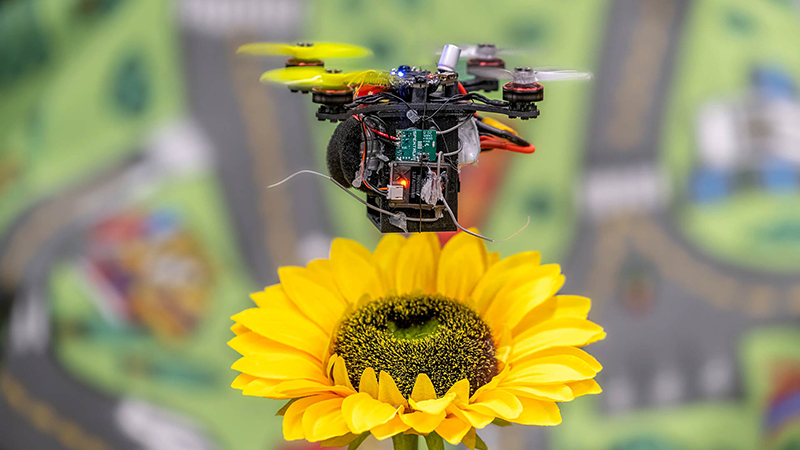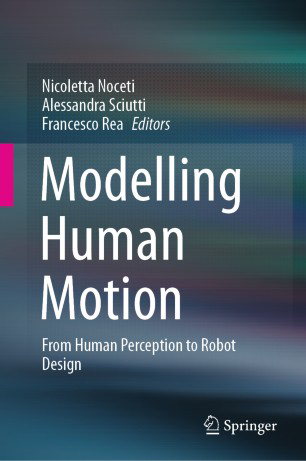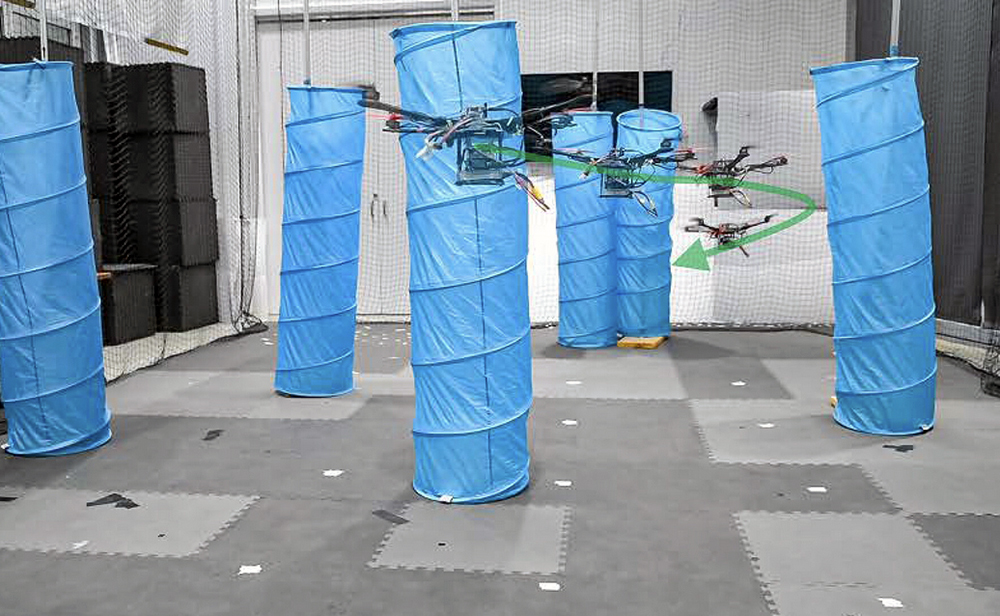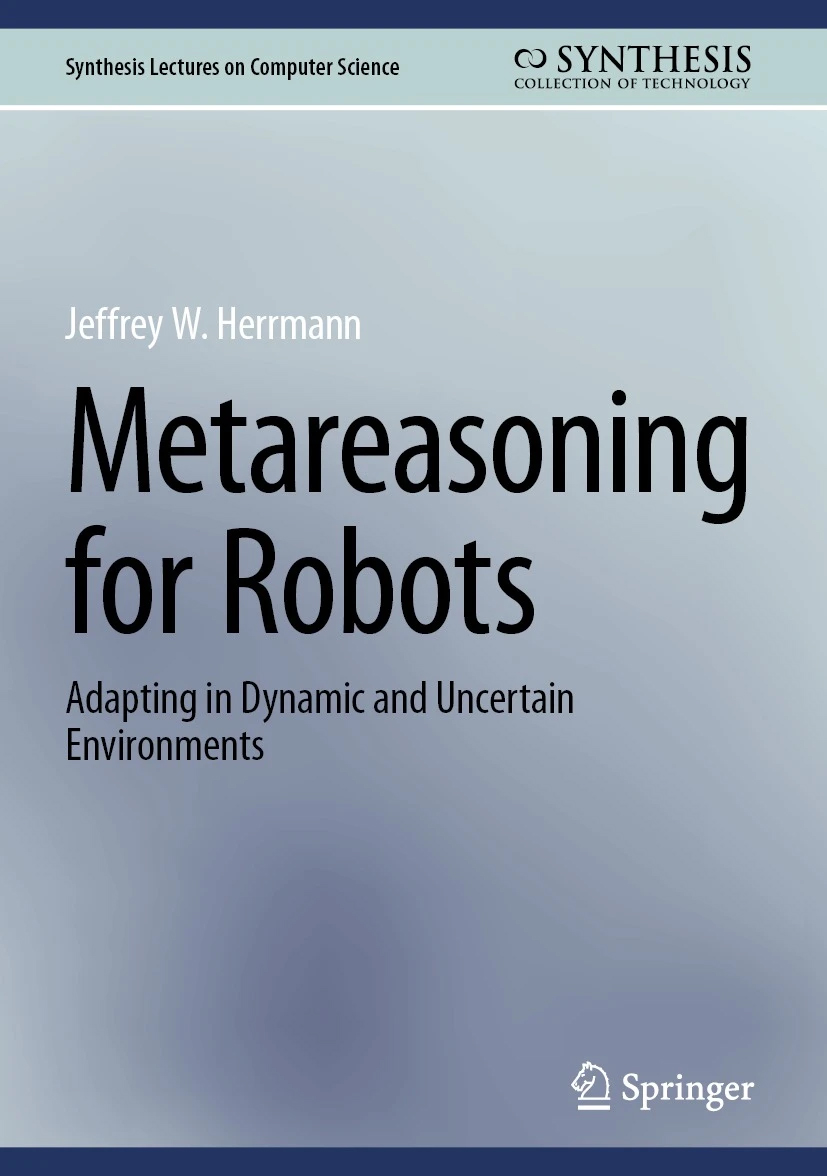News Story
Aloimonos, Sandini contribute chapter to MIT Press book, Cognitive Robotics
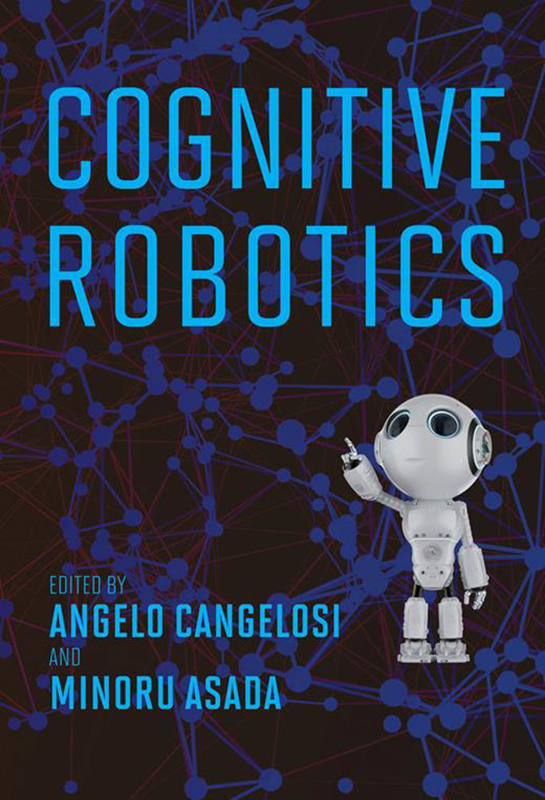
ISR-affiliated Professor Yiannis Aloimonos (CS/UMIACS) and Professor Giulio Sandini (Italian Institute of Technology/University of Genoa) have contributed chapter 14 “Principles of Computer Vision,” to the MIT Press book, Cognitive Robotics, edited by Angelo Cangelosi and Minoru Asada. This volume is part of the Intelligent Robotics and Autonomous Agents series.
In their chapter, Aloimonos and Sandini define cognitive vision as “the set of processes that processes real-time information and provides the perceptual hypothesis required to carry out this dialogue… the peculiarity of cognitive vision is the extension of the concept of “processing visual data” beyond the concepts of “extracting visual features for real- time control” (as in reactive systems) to address how to ‘generate expected visual features supporting anticipatory behavior.’” They then go on to provide a detailed explanation of their definition.
As a whole, Cognitive Robotics discusses the current state of the art in this field, covering the challenges of building AI-powered intelligent robots inspired by natural cognitive systems. A novel approach to building AI-powered intelligent robots takes inspiration from the way natural cognitive systems—in humans, animals, and biological systems—develop intelligence by exploiting the full power of interactions between body and brain, the physical and social environment in which they live, and phylogenetic, developmental, and learning dynamics. Cognitive Robotics reports on the current state of the art in cognitive robotics, offering the first comprehensive coverage of building robots inspired by natural cognitive systems.
Cognitive Robotics is aimed at an interdisciplinary audience, balancing technical details and examples for the computational reader with theoretical and experimental findings for the empirical scientist.
Chapters
1: What Is Cognitive Robotics?
2: Neurorobotics: Neuroscience and Robots
3: Developmental Robotics
4: Evolutionary Robotics
5: Swarm Robotics
6: Soft Robotics: A Developmental Approach
7: Robot Platforms and Simulators
8: Biomimetic Skin
9: Machine Learning for Cognitive Robotics
10: Cognitive Architectures
11: Embodiment in Cognitive Science and Robotics
12: Ethics of Robotics
13: Intrinsic Motivations for Open-Ended Learning
14: Principles of Cognitive Vision
15: Cognitive Robot Navigation
16: Cognitive Robot Manipulation
17: Cognitive Control for Decision and Human-Robot Collaboration
18: Social Cognition
19: Human-Robot Interaction
20: Language and Communication
21: Knowledge Representation and Reasoning
22: Abstract Concepts
23: Robots and Machine Consciousness
Published December 22, 2022


